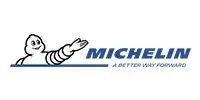FAQs
Superior Tire and Auto
Do you offer any guarantees or warranties for your work?
Superior Tire and Auto provides comprehensive warranties for our services. We offer guarantees on parts and labor for most repairs and maintenance work. The specific terms of these warranties may differ based on the service provided. Our team is always ready to provide detailed information about the applicable warranties for your particular service, ensuring you have confidence in the work we perform.What should I do to prepare for my service?
To prepare for your service at Superior Tire and Auto, please ensure your vehicle is easily accessible and remove any personal items from the car. If you have specific concerns about your vehicle, we recommend writing them down to discuss with our technicians. If available, bringing your vehicle's maintenance history can be beneficial during your service appointment.How often should I get an oil change?
The general recommendation for oil changes is every 3,000 to 7,000 miles or every three months. However, your vehicle's owner's manual provides the most accurate oil change interval for your specific make and model. Many modern vehicles have systems that indicate when service is needed. Regular oil changes are essential as oil lubricates the engine's internal parts. Without proper maintenance, oil can degrade, potentially leading to engine issues.How often should I check my vehicle's fluid levels?
We recommend checking your vehicle's fluid levels regularly, ideally at the same time as your oil change or every one to two months. This includes examining transmission fluid, brake fluid, engine coolant, and power-steering fluid. The frequency of these checks may be influenced by your driving habits and environmental conditions. Consistent monitoring of these fluids is crucial for maintaining your vehicle's overall health and performance.How often should I change my air filter?
Vehicles typically have two air filters: one for the engine and one for the cabin. The standard recommendation is to change these filters approximately every 30,000 miles. However, it's best to inspect them periodically, as replacement needs can vary. A clogged filter can impede airflow, affecting engine performance and cabin air quality. Replacing an air filter is usually a quick and straightforward process.When should I replace my brake pads?
Brake pads typically begin to wear out between 20,000 and 30,000 miles, though this can vary depending on driving conditions and habits. It's important to be aware of signs indicating the need for replacement, such as increased stopping distances or high-pitched noises when braking. Addressing worn brake pads promptly is crucial, as continued use can damage the rotors, potentially leading to more costly repairs. Regular inspections can help ensure your braking system remains safe and effective.When should I replace my car battery?
Car batteries typically last between three to five years, but their lifespan can be influenced by factors such as extreme temperatures. It's important to monitor for signs of declining battery power, including dimming headlights and dashboard lights, or difficulty starting the vehicle. If you notice these symptoms, it may be time to consider a battery replacement to ensure reliable vehicle operation.When should I get a tire rotation?
Tire rotation is advised approximately every six months or between 6,000 to 8,000 miles. This is particularly important for vehicles with two-wheel drive systems or those used in off-road conditions, as these factors can cause uneven tire wear. Regular rotation helps ensure even wear across all tires, potentially extending their lifespan and maintaining optimal vehicle performance.How much air pressure should I put into my tires?
The appropriate air pressure for your tires depends on your specific vehicle and tire type. This information can typically be found on the driver's side door jamb, the tire sidewall, or in your vehicle's owner's manual. Maintaining correct tire pressure is essential for vehicle handling and safety. Overinflation can result in handling difficulties, while underinflation may lead to a blowout. For personalized guidance, our technicians can assist in determining the most suitable pressure levels for your vehicle.What products and services does Superior Tire and Auto offer?
Superior Tire and Auto provides a wide range of automotive services. Our offerings include tire sales and services, brake repairs, oil changes, engine diagnostics, and general vehicle maintenance. We also handle more complex repairs such as transmission work and exhaust system services. Our skilled technicians are equipped to address most automotive needs for a variety of vehicle makes and models, ensuring your vehicle receives expert care and attention.









